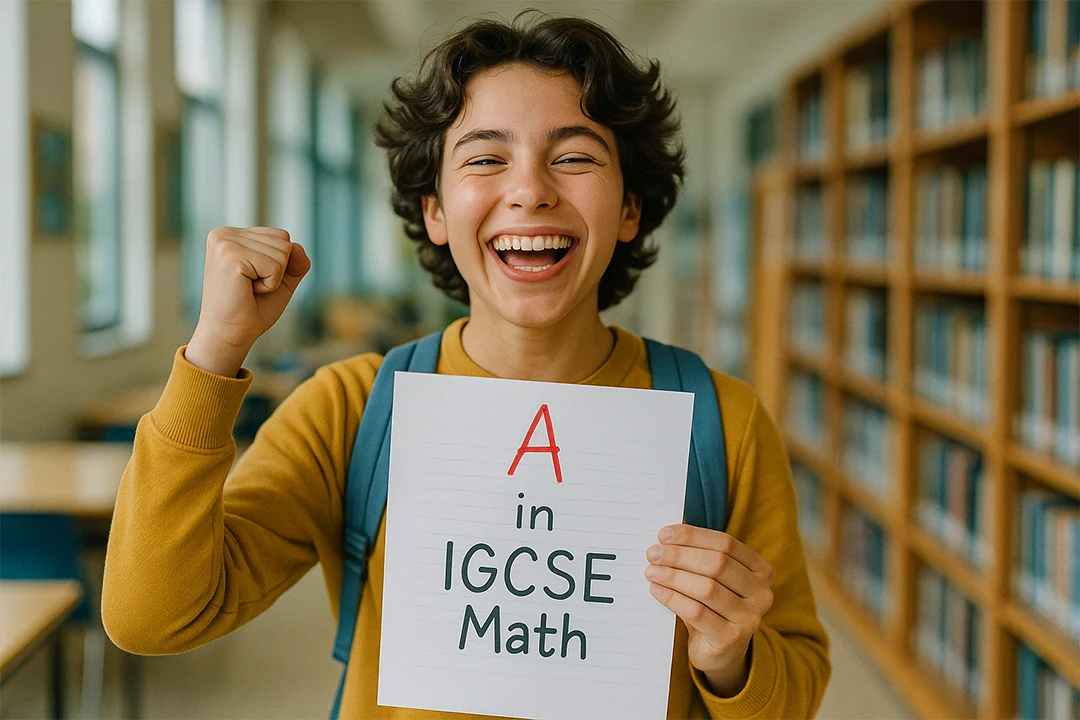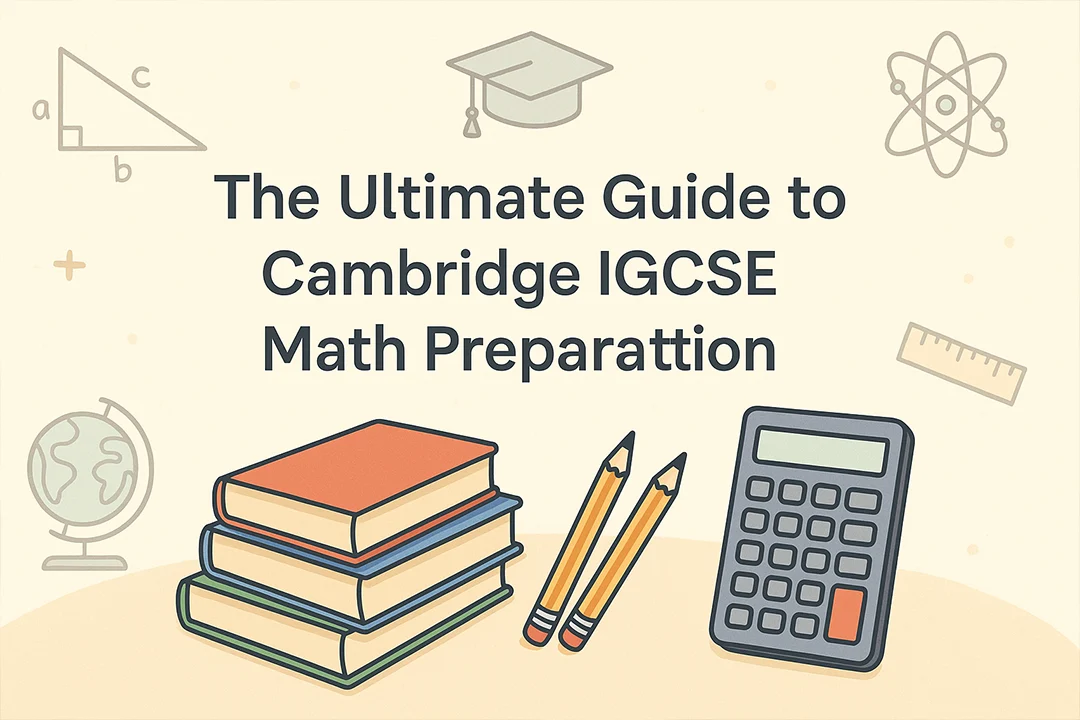
Mathematics is often regarded as one of the most challenging yet rewarding subjects in the Cambridge IGCSE curriculum. Whether you're aiming for an A* or simply trying to pass with confidence, having a solid preparation strategy can make all the difference. With the right techniques and support, mastering your IGCSE Math exam becomes a realistic and achievable goal.
This blog will walk you through expert strategies, structured study plans, resource recommendations, and common student concerns—so you can confidently approach your Cambridge IGCSE Math preparation.
Understand the IGCSE Math Syllabus
The foundation of effective study begins with syllabus awareness. Cambridge offers two main mathematics syllabi:
- IGCSE Mathematics (0580): The standard syllabus, split into:
- Core Curriculum: For grades C to G
- Extended Curriculum: For grades A* to E
- IGCSE International Mathematics (0607): A slightly more advanced syllabus with coursework components, suitable for IB pathway students.
Core Topics Include:
- Number
- Algebra
- Geometry & Trigonometry
- Statistics & Probability
- Mensuration
- Functions & Graphs
Create a Realistic Study Plan
A successful student doesn’t cram—they plan. Here’s how to build your math study roadmap:
- Start with a diagnostic test to assess your current level.
- Break the syllabus into weekly goals and prioritize weak areas.
- Design a weekly schedule:
- 2 days: Learn new concepts
- 2 days: Practice exercises
- 1 day: Topic revision
- 1 day: Solve past papers
- 1 day: Rest or review light content
- Apply Pomodoro: 25 min study + 5 min break (longer breaks after 4 sessions)
- Track progress using journals or study apps.
Pro Tip: Adjust your plan every 2 weeks based on actual performance and progress.

Use Effective Study Techniques
- Active Recall: Close your book and recite concepts from memory.
- Spaced Repetition: Revisit topics after increasing intervals.
- Practice-Based Learning: Reinforce theory with structured questions.
- Error Log: Note your mistakes and review them weekly.
Top Resources for IGCSE Math
Recommended Books:
- Cambridge IGCSE Mathematics by Ric Pimentel & Terry Wall
- Oxford IGCSE Mathematics by David Rayner
- CGP Revision Guide for IGCSE Maths
Online Platforms:
- Save My Exams – Revision notes, topic-wise questions
- Khan Academy – Conceptual explanations
- Maths Genie – Video tutorials and practice sheets
- Past Papers Wiki – Archive of past papers
YouTube Channels: Exam Solutions, HegartyMaths, Maths with Mr. Tompkins
Practice Past Papers Regularly
- Start topic-wise, then move to full papers.
- Time yourself as per real exam conditions.
- Check with mark schemes and learn from feedback.
- Write full working—even partial credit counts!
Tip: Begin solving past papers at least 2 months before your actual exam.
Avoid Common Mistakes
- Read each question carefully before attempting.
- Label units and graphs clearly.
- Don't rely blindly on calculators—check logic.
- Double-check for careless arithmetic slips.
Exam Day Preparation
- The Night Before: Light review, organize materials, sleep well.
- On Exam Day: Arrive early, stay calm, manage time effectively.
- Spend ~1.5 minutes per mark to maintain pace.
- Never leave a question blank—even a guess might earn marks.
Conclusion
Success in Cambridge IGCSE Math doesn’t require genius—it requires planning, effort, and consistency. Whether you're tackling the core or extended syllabus, following a structured approach will significantly boost your confidence and performance.
Remember: Math is not just about solving problems—it's about developing analytical thinking. Keep practicing, stay motivated, and your goals will be within reach.
Need extra help? Book a free session with our expert IGCSE Math tutors and get personalized support for your exam journey.
FAQs
Ideally, 1–2 hours on regular days and 3–4 hours closer to exams.
2. Is the Extended syllabus very difficult?It’s more detailed, but manageable with consistent effort and good resources.
3. Can I use a calculator in the exam?Yes, but practice both calculator and non-calculator sections.
4. What’s the best way to improve weak topics?Use targeted resources like Khan Academy and solve simpler problems first.
5. How can I stay motivated during exam prep?Set small goals, reward yourself, visualize success, and study with a partner.
